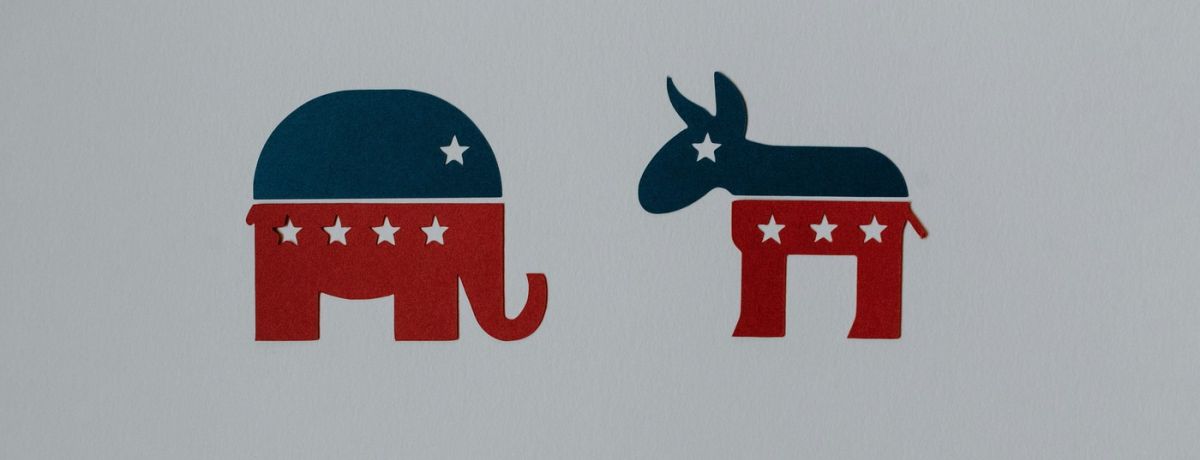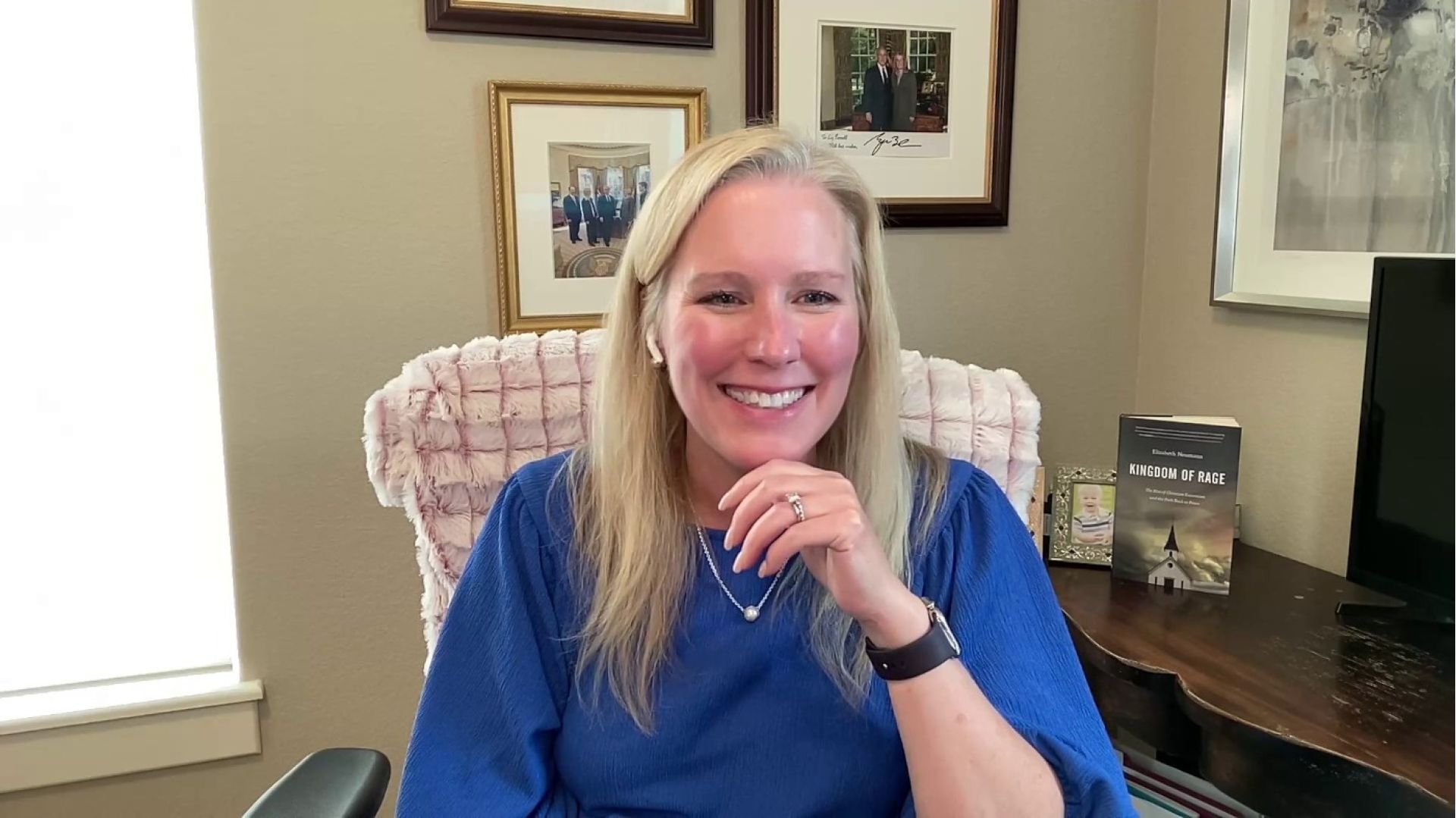
Three Surprising & Powerful Conversations Between Prolific People With Different Political Views
America is in crisis. The tragic murder of Charlie Kirk is an escalation of our downward spiral as a society.
When people believe hostile action is the only way to solve their problems, we've dove deeper into dangerous territory.

Life is Hard. Business is Challenging. The World is Uncertain.
Leaders, freelancers, and entrepreneurs: Get stories & systems, for navigating the challenges, in your inbox.
What we need is political leadership that transcends partisanship for what is true and good. We need leadership that won't encourage violence but will instead seek nonviolent solutions to political and societal problems.
Right now, we're in short supply, but over the last several months, I've surprisingly seen three conversations with people of differing political views coming together in a civil and productive way. It's quite inspiring to see that America Together is what we need to face the countless challenges before us.
And these types of conversations also immunize us from radical violence while also preserving our democratic-republic.
Preventing Violent Extremism
There's a great episode about political polarization on the Power of Us podcast. Here's the first key insight that relates to these conversations I'll share.
"The best (3) messages to make people immune to threats to democracy... and resistance to partisan animosity and violence.
1. If you see positive contact between people in different parties, where they are able to work together and hear out people's differences... that seemed to be one thing that moved the needle and reduced animosity.
When people see leaders from different tribes having productive conversations, it makes a difference. Because I'm regularly consuming content across political, ideological, and religious lines, I'm regularly receiving different points of view on issues (often from people who are hostile to each other). I dream about a crossover between these leaders. The conversations I'll be sharing below are striking to me because they were conversations with people, particularly the first two, that I didn't expect would happen. I wanted them to happen, but I just didn't think it would. So I was encouraged and excited to see them when they were released.
Now, before I share the conversation, I want to convey the other two points from the Power of Us podcast. The conversations themselves embody these two points, and you'll notice them as you watch or listen.
2. Another thing was helping people understand that they are caricatured and misrepresented by the media. When liberals and conservatives understand that they're both being misrepresented in the media, or the worst kinds of forms of them are being presented in the media, they develop a shared understanding that they might be a little different than their portrayal.
3. You need to remind people that they have a common shared purpose and identity that supercedes and preceeds their political identity... if they hear that message, that turns out to be the most effective ways to reduce animosity and increase support for democracy." - Solutions to Polarization, The Power of Us
Misrepresentation and a shared purpose are two vital components of holding our country together. Look for these dynamics in the following discussions.
Three Unexpected Conversations
1. David French & Jordan B. Peterson
What happens when a writer from a publication that you despise writes something nice about you? You get an invite for a conversation on the podcast.
Thats what happened when David French wrote some (in the New York Times) nice things about Jordan Peterson. The conversations between someone who publicly endorsed Donald Trump and someone who publicly endorsed Kamala Harris for president are powerful and insightful. And, you'll see how much Peterson, who has been maligned by much of the media, appreciates being engaged with generously and fairly. I've spent a lot of time consuming content from both of these men and was pleasantly surprised when this showed up on my feed.
2. Patrick Deneen and Steve Dubner (Freakonomics)
While the French and Peterson discussion was unexpected for ideological reasons, this one was unexpected because it's a conversation between someone in the philosophy and political arena and someone in economics. Freakonomics is one of the first podcasts I started listening to in the medium many years ago. Patrick Deneen wrote a book I appreciated called Why Liberalism Failed (affiliate link), a topic that I discussed with author David Koyzis about on the Share Life podcast.
Deneen has been raked through the coals by many in the media, and like the Peterson conversation, Dubner wanted to give Patrick a generous and fair opportunity to speak for himself and have a meaningful conversation.
There's a key section of the conversation I'd like to emphasize and circle back around to later, as to Deneen's explanation for why many Christians justified voting for Trump, in contrast to my own objections.
DUBNER: ...explain to me how so many religious conservatives across a variety of spectrums are able and willing and enthusiastic to reconcile President Trump’s many un-Christian attributes. His overt cruelty; his belittling rivals and enemies, including the powerless; sexual mores that I know you — you write about sexual mores at length, and I can’t imagine you approve of the President’s; his appetite for cronyism and corruption. Does one just put aside those attributes in a belief that the greater good is what’s worth pursuing, or is there a more delicate calculus than I’m aware of?
DENEEN: So I’ll put on my political science hat here. I’m not going to speak of my own personal views on this, but I think the way to understand the religious right’s relationship to Donald Trump is borne of the the felt sense among that community of constant and continual loss, of constant and continual political weakening of their position, regardless of whether they elected a Republican or whether a Democrat was elected to office. When the word RINO is invented, it’s been invented in part to express this, “Republican in name only,” that the party that the religious right supported, of course since Ronald Reagan, maybe Barry Goldwater, continued to fail to support and advance those positions that were most of importance to people on the religious right. This is especially of course in the social domain, family values and so forth, policies and court decisions and Supreme Court justices that ended up betraying what they thought they were getting, ended up leading, I think, people in this part of the political coalition to say, You know what? It’s not enough just to vote nice people who wear ties and say nice words, and they’re just Chamber of Commerce Republicans that always vote to send factories overseas. We want somebody who’s going to fight. We’re not looking for the nice guy anymore. We’re not looking for the Paul Ryans. We’re looking for somebody who is ready to take down this system. The problem isn’t just individual politicians anymore, it’s systemic. And so I think they basically said, we need somebody who’s going to break things. And I think they were willing to overlook all of the personal peccadilloes and everything you described — which, I will state, those are not aspects of President Trump that I’m especially fond of. But the idea that he would fight and he would take on the system, and he had no compunction about it. He wasn’t afraid of the New York Times being critical of him. I think that explains the view of the religious right in that respect.
3. Ezra Klein and Ben Shapiro
If you're unfamiliar, Ezra Klein was one of the few people in the Democratic Party to call for Biden to step down and not run for reelection (because of his aging decline). This conversation between him and Ben Shapiro isn't so much unexpected as both are regularly engaging with each other (and those they disagree with) in public forms. But it's still an insightful conversation with two people coming from different paradigms and worldviews, willing to listen and speak sincerely.
Other Conversations Worth Exploring
There are many more of these bridge-building opportunities out there, so if you see them, send them my way, and I'll add them to the page.
- Donald Trump and the 'Revolt of the Elites' (Ezra Klein and Martin Gurri)
- I Took Bernie Sanders Into Deep Trump Country. Can He Win Them Over?
- Three historians debate the era of Trump (Niall Ferguson, Victor Davis Hanson, and Stephen Kotkin)
- Who has the power to define the truth? A Doha Debates conversation between Glenn Greenwald, Siva Vaidhyanathan, and Renee Diresta on free speech, content moderation, and the realities of platform governance


